Femininity and Feminism
 04.7.2012
04.7.2012 
What was it Simone de Beauvoir said about being a woman? “One is not born a woman, but rather becomes, a woman.”
I disagree. Nothing could be easier for most of us than being the sex we are born.
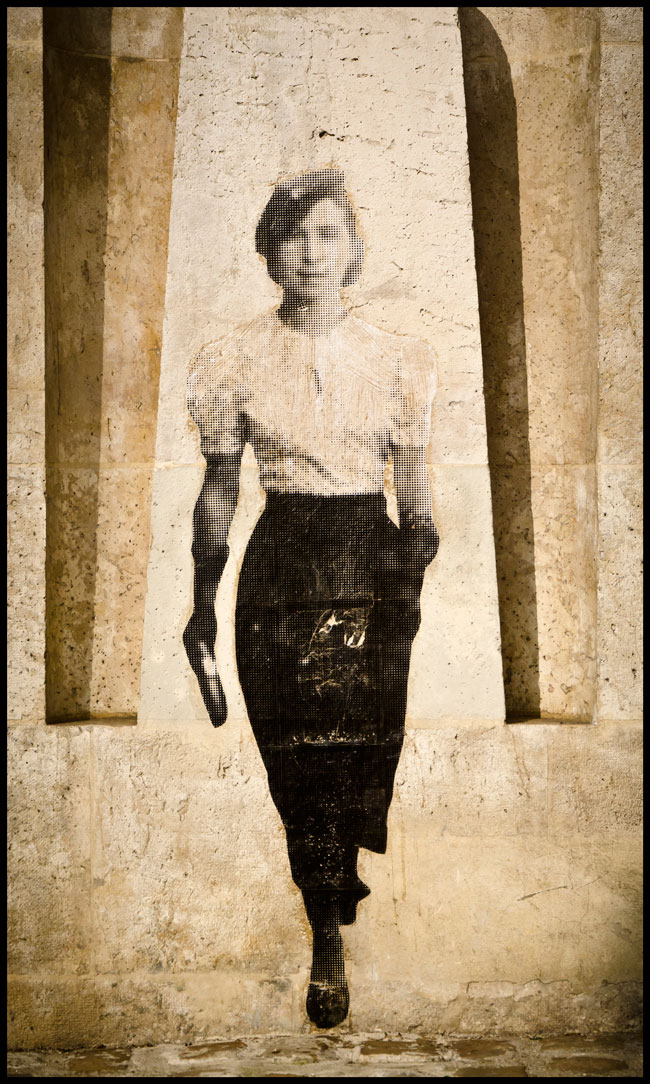
While men's and women's differences are to some extent culturally determined, many of our differences are innate.
Women are more attuned to nuances of relationship than men.
Women are more radial in their sensibility.
Men tend to find it easier to stay focused on getting to their goals.

Men tend to be more linear in sensibility.
Generalizations, I know. But for the most part, I’ve found them to be true.
I know a gifted psychotherapist, one of whose specialties is couples counseling. She once told me that with most couples, when you ask the man what he wants in a relationship, she usually hears, “I just want her to be happy.”

In the realm of relationships, men are simpler, she says. They want to be appreciated. They want to be admired. They want their women to be happy.
The great psychiatrist and mythographer, C. G. Jung, had another angle on the subject: he came up with the notion of the anima and the animus, the contra-sexual being inside both women and men. Men have within them an image of the feminine, or a female soul. Women have within them, the image of the masculine, or male spirit.
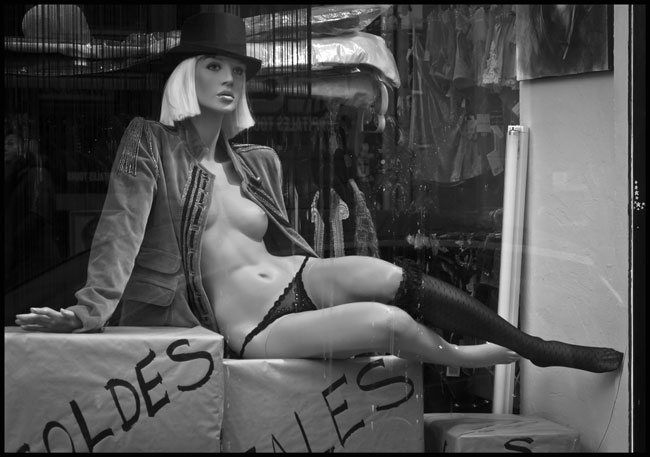
I went on amateurishly to sketch a plan of the soul so that in each of us two powers preside, one male, one female; and in the man’s brain the man predominates over the woman, and in the woman’s brain the woman predominates over the man. The normal and comfortable state of being is that when the two live in harmony together, spiritually co-operating.

To be successful the mind must possess an ignorance of sex, Woolf writes in A Room of One’s Own:
the mind of an artist, in order to achieve the prodigious effort of freeing whole and entire the work that is in him, must be incandescent, like Shakespeare’s mind.
I seem to be circling around what I want to say. And I can’t really approach it through generalizations. (If I were a man, I’d have gotten to the point by now.) I can only approach it by recalling certain moments in my life that still resonate.
Some happened before I was born. Others happened afterwards.
What shall I call these moments?
What if they all together added up to a constellation, a metaphorical shape in the sky? A shape I won’t recognize without first laying them all out, like stars?
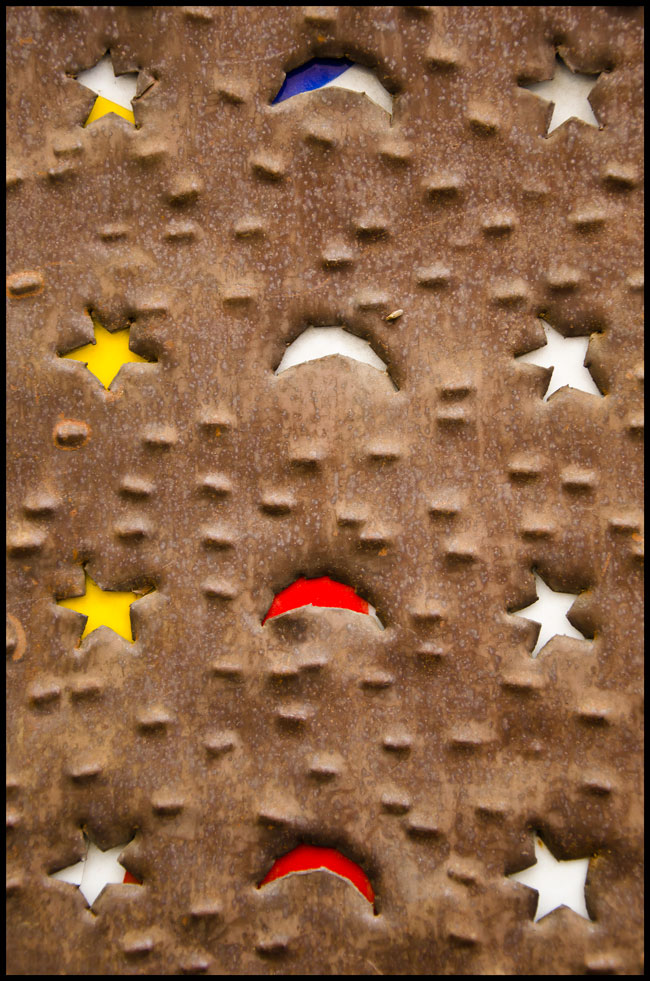
So, stars:
Star: It is 1945. My father is in the Navy. My mother travels from their apartment in Greenwich Village to her childhood home in Fairmont, Minnesota.
Her father, my grandfather, had left the farm on which he was raised to go to medical school, to escape the life of a farmer. He was now a brilliant medical diagnostician, a beloved family doctor.

His oldest child and only daughter, my mother, always wanted to be a doctor, and had her father’s gift for it.
No, he said, since they wanted six children, he’d be happy to earn the living for the family while she raised the children.
My grandfather and my mother’s brother, himself a doctor, also dissuade my mother from going to medical school. Why do women need to go through all that?
Star: My parents have five children rather than the six they planned. Four are girls. My brother is given a middle name. We girls are not, presumably because we’ll marry and get name #3 that way.

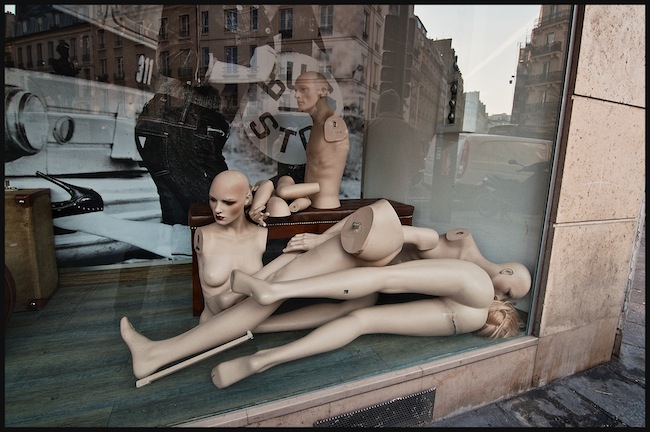

I do so, with no discussion of his decision. We move from a ranch in Novato to an 85-foot schooner. We move from land to the sea. We move from the life of being a couple to being a “crew.” I don’t question that he hasn’t even asked me whether this life appeals to me.

Star: We sail from Honolulu to Marina del Rey. We are a crew of ten. We move to a shipyard in Newport Beach, where we’ll renovate the ship for the next two years. Everyone chooses jobs on the schooner. Since I’m the only woman who lives full-time on the boat, it is assumed that my job is to cook. I don’t like to cook, though I’m perfectly good at it. And anyway, I can’t rebuild engines.
Star: It’s 1972. It’s the Virgo decade, the decade of Demeter. Everyone is tuning up their health by careful dietary choices. The men want no dairy in their diets. They want home-made corn bread and three meals with three or four courses each a day. But we’re rebuilding the galley, and don’t have a refrigerator or stove, so I must market once or twice a day and cook on an hibachi in the noisy, dusty shipyard.

At the market one day, I pick up the first issue of Ms. Magazine.
The ship is an optical illusion, a mirage. From the outside it looks like the ultimately glamorous life: we’re rebuilding her to sail around the world.

Groupies flock around the single male crew members. These are seriously mentally challenged “chicks” and the turnover is high. It is my job to comfort the broken hearts of girls who were attracted to adventurous guys who have something they want (a free ticket to sail around the world) but who quickly grow tired of them.
From the inside, this life is anything but glamorous. It is hard physical labor all day long, seven days a week. It is a perfect life for an extraverted action type who loves being surrounded by people and adores physical labor, like sanding masts, rebuilding engines, pumping the bilge.
For an introverted intuitive type like me (you know, a dreamer), it is my definition of hell.
I beg my boyfriend to leave the boat. He doesn’t hear me for two years. “Think of the adventures we’ll have sailing around the world,” he says.
But it’s too many people, too little time for reading and writing or any of the things I like to do.
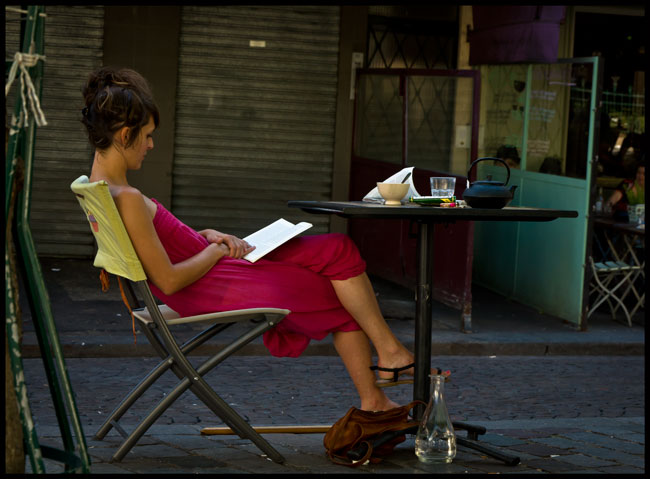
Star: A. and I rent a little apartment on the beach in Laguna Beach. It is so small that we have to halve the day. He leaves in the a.m. to give me silence to write. I leave in the afternoon to give him solitude to paint. His friends knock on the door all morning looking for him. I ask him to tell them to stop by during his “studio hours.” One leaves me an anonymous nasty cartoon. How dare a woman try to have silence, a space of her own?

I ask A. to go to counseling with me. He doesn’t see the need, refuses.
I leave him, get involved with another man.
Now A. offers me whatever I want, silence in the morning, communication, counseling, anything. But it’s too late.

Star: I live in hiding on the other side of the country for a year and a half, until he tracks me down by breaking into my parents’ home.
Star: Ten years later in Santa Fe, I become a traveling art dealer. I don’t pay enough attention to appearance, clothes, but in this job, with high-end buyers, I must refine my wardrobe and appearance. I borrow a gorgeous black cotton dress from a good friend, pair it with a concho belt my mother has given me, and looking my best, interview for the job, get it, and go to artists’ studios to look at their work.

One of the male painters says, “She’s too good-looking to be any good as an art agent” to a friend of mine, who tells me what he said.
In my first art-selling trip to Arizona, I snag three banks, am asked to fill them with art of my choosing, paintings and sculptures of the artists whose work I carry. I place no paintings by this artist in any of the banks. Another artist is able to put a down payment on his first home from the paintings that have sold.
Star: In Santa Fe I complete a vision quest of thirty years. What I discover at the center of the labyrinth is that the breakdown I experienced in my first year of college, post-loss of religious faith, post-boarding school structure, was not a merely personal drama.
The confusion about values, about my path and focus, was a refusal of an entire cultural construct: a patriarchal world in which nature is not honored, women are not revered, all is driven by the masculine values of progress, economics, power, domination. And the soul, being, relationships, love, the sacred, the earth, are lesser values or ignored altogether.
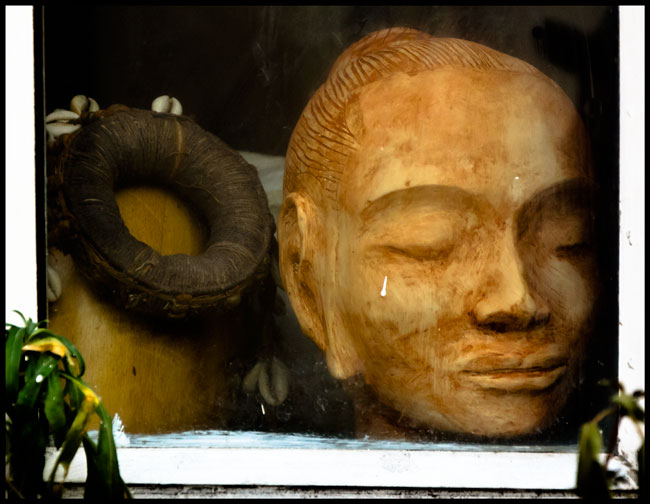
Long after I become clear about my own spiritual values, and work…
Long after the influence of Virginia Woolf, Simone de Beauvoir, Betty Friedan, Doris Lessing, Anais Nin, Ms. Magazine…
Long after the lessons of the ‘60s and ‘70s about equality between women and men have become a part of our cultural conversation…
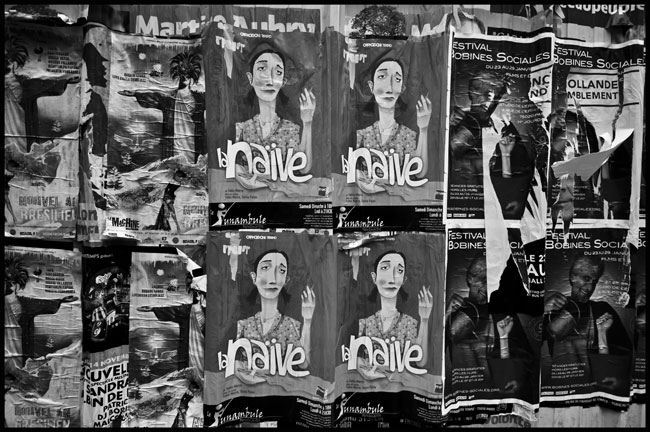
I hear women denying they are feminists, or splitting hairs in defining it:
“Poor men—it hurts their feelings.”
“Feminism needs to be more feminine.”
Or from women who’ve been getting by for years by being seductive: “I’ve never had any trouble as a woman getting what I want.”

“Poor white people. You wouldn’t want to hurt their feelings, now would you?”
“We just need to be more pliable, less demanding.”
This is just plain absurd. Nothing at all changes without the first revolutionary activists. It’s their very anger—that fire, that light—that blazes the trail, lights the way.
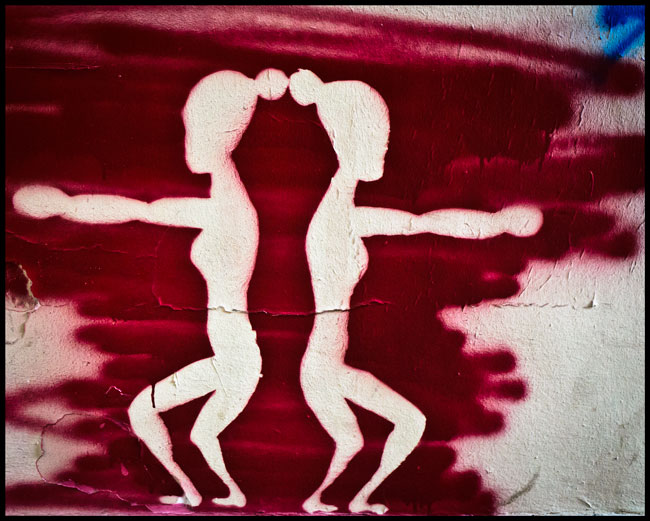
I have a few questions I’d like to ask you women who deny or negate feminism:
Have you ever been dissuaded from doing the work you wanted to do because you’re a woman?
Even if you proceeded with the work you wanted to do, have you ever had others in your life consider it secondary to matters of relationship, others’ expectations of you as wife, girlfriend, mother, friend?

Have you ever been punished for your looks—looking “too good,” or looking “not good enough?”
Have you ever had life decisions made for you, without being consulted, because you are a woman?

Have you ever feared for your life because a man wanted something from you that you didn’t want to give him?
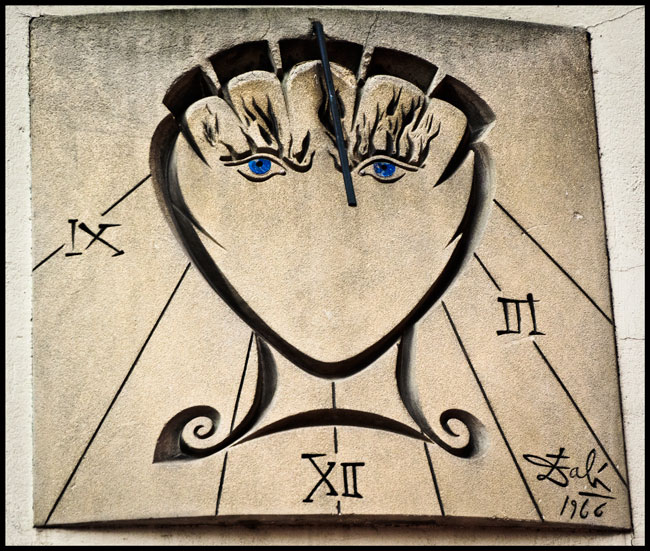 Street art by Salvador Dali
Street art by Salvador Dali


Reader Comments (27)
Oh boy, I could write for hours on this subject. First off, I love the photo of the mannequins. It reminded me of my late teens and early 20's, how I felt as a young woman who had been sexually abused since she was 13 and didn't get that the sixties was a good excuse for more of the same. Did you have ever have a guy say "you're being selfish" when you wouldn't have sex with him? That was a line I got a couple of times when I was young.
The men of our generation had the talk down, the ideas of feminism, but when it came down to it, in relationships, they were still in "Father Knows Best" land. My husband left when, after 10 years of staying home with the kids while he practiced his art, I started directing and had thirty people working for me. He needed to be the center around which the family revolved.
When I was in eighth grade, and a child actress on a t.v. series, I gathered 18 school mates and directed a play. Now so many of my male friends have big pensions from the directors guild from careers that started in their early 20's. That just wasn't an option for me. Women just weren't directors, give or take a handful of extraordinary women. The percentage of female directors is still incredibly low, I think in single digits.
My youngest daughter is starting college and wanting to major in Gender Studies. I actually had an impulse to tell her that it would be detrimental to her relationships with men - becoming that aware of the inequities that still exist. (I didn't say that, and I won't, but what a shame that it even entered my mind.) Hopefully the men of her generation will embrace her education as truth, not rebellion.
Thanks for yet another thought-provoking post. Love to you, Diane
Dear Dawna,
What a great opportunity teaching offers for "changing minds." What does the word feminism mean, anyway, if not "women's rights?" I think the objection to the word comes from a lack of understanding of how change occurs. Power never gives an inch to those who ask reasonably. Would the American Revolution have happened if we'd politely asked Britain for our independence? It takes fiery fighting to win rights from the powers that be. Look at what happened in every single country of the Arab Spring.
We haven't encountered that hostility in this blog. But we know it exists.
Ageism: I haven't been in France long enough to know if first impressions are accurate, but my sense is that ageism operates in hiring for work for both men and women. But there is definitely less of a fetish for youth here, and Eros seems to be alive and well at most ages. I do have the sense that French men are more flirtatious with and actively interested in older women, and the same goes for French women with older men.
Yes, it's much better for women now than it was even fifty years ago. But if you look at the effect of patriarchal values in how we spend money in the U.S.--war instead of education, health and infrastructure, we still have far to go to achieve the broadest values of feminism. And all over the planet we are still abusing Mother Earth, using up her resources in our greed for power and wealth.
And you're right--we don't have to settle! Thanks for your eloquent responses, Dawna.
Much love,
Kaaren (& Richard)
Because some of us were raised by working professionals for whom marriage and children (for us, their children) was never a goal, we went out into the world without a sense of inferiority, or the thought that others would choose for us. And yet, though we weren't assaulted in major ways (okay, except for an attempted rape, but I count that as one psychopath, not "all men"), we were (and are) dismissed in small, niggling ways.
One of the most eye-opening, pro-woman plays (that doesn't at first come off that way at all) is David Mamet's Oleanna. Those small, niggling ways add up!
You and Richard, in this essay and through those images, gave voice to my voice.
Dear Diane,
I applaud your great courage in what you've written. You've told several stories about yourself that I didn't know. Sexual abuse is something that many women have experienced but I don't think anything could be more terrible than having it happen to you as a child. And I know you were a trusting child. It seems to me one of the greatest crimes.
I never heard that particular line but I've heard an arsenal of others. I think we each need to write a short story about one of those encounters.
Your husband's leaving when you had a great job: that's about power and ego, isn't it. If he wasn't (for however long) in the dominant position, he couldn't love. Which sounds to me like something that isn't love at all. Love flees when power is the aim.
I also didn't know you'd directed at such a young age. If there had been the possibility of having a directing career, do you think you would have preferred that to writing fiction?
I am so glad that Natalie is going to major in Gender Studies. That might make the pool of possible mates smaller, but the one she chooses will be a major catch. The ironic thing is that what women and men most fear about feminism--that it will make for less harmony between men and women--is only true if the woman is feminist and the man is patriarchal. If both are feminist in values, it makes for a far more fulfilled love relationship. When both men and women are given respect, autonomy and freedom to do the work for which they have a passion, you have two passionately engaged people. And the attraction is likely to last much longer because one of you is not bored to death and pestering the other to provide fulfillment in everything. Some fulfillment has to come from each of your work, or else there is too much burden placed on the relationship.
To be continued in fiction...
Much love to you,
Kaaren (& Richard)
Dear Anna,
Thank you for speaking for those who were raised by working mothers. It took me a few years to wake up and make my own choices, but I never had a sense of inferiority. More a sense that something was out of balance in the world spiritually, and that that was mirrored by the attitudes of some men whose assumptions I didn't share.
It's odd that this sense can co-exist with something else: growing up loving males--my father, my brother, and most of the men in my life. I love men, but always felt that something was out of balance. And it was.
It is such a profound relief to be married to a man who makes all the same assumptions I do about freedom and respect between men and women. It's like leaping ahead in time to a balanced place in which I am being nourished as much as I'm nourishing.
I'm definitely going to go see Oleanna if it's ever playing in Paris. I trust your judgment in art.
I think of your Lucrezia novel as giving voice to a woman of centuries ago, who, in spite of great power, was abused in so many ways.
We just have to keep on giving voice to these stories.
Much love,
Kaaren (& Richard)
I have always seen my sister, Kaaren, as the leader in our family of five kids. She has known from a very early age the importance of following our inner compass and creating our own satisfaction. To determine long before it has become common knowledge in our male dominated, insensitive world that we are absolutely responsible for our personal happiness and must focus continuously on just this, my wonderful 'big' sister guided all those that listened to ways to find one's passion and bliss. It was not easy for her to envision, attract and nurture this independent journey but it led to such a beautiful life and love. She never strayed from the certainty that it was available and essential for the health of our spirit. As number three in our family, this lesson she lived, came naturally to me as logical, liberating and in keeping with a creative life view. I too have ignored the norms and been criticized for doing so. At some point you just stop living with the norms and create your own reality within but separate from the rest. It is so comfortable to arrive at a point in life when your truth with yourself has taken you to a place that you celebrate daily. When this happens the norm wants to become a part of your life to enhance their happiness and discover how to perpetuate it. That is when sharing becomes important and I thank my beautiful sister Kaaren for sharing her bliss with us all. Richard..........you are such an integral part of that bliss and creative expression that you two are like one to me. Love you.
Jny
YOW, Jonny,
I wept on reading this. You caught me on a difficult day, and it felt like moving from a cold rainy day (which it is) into brilliant sunlight.
I think of myself as the leader of us five siblings only in the sense that I was the oldest, so naturally did things first. I take no credit for my siblings' rambunctious adventures, or for choosing the right work or right relationships. What I mean is that when you decided to jump from heading a successful home-building division of a larger construction company, one in which you were making good money, to start your own green building company at the lowest point of a recession (or let's call a spade a spade, a depression), I was astonished. It was such a courageous move at that time, particularly in a state which was especially hard hit by the economic and housing market collapse. You have followed your own path, your own bliss, since you were a boy chasing me through the desert with rattlesnake guts, and much more that I dare not tell in public (:- ) ) and it has blossomed into a booming business. You were always drawn to sculpture and building and landscape and now you are sculpting landscape designs and ecologically-beautiful housing and community projects that are balm to the heart and eye.
It's odd, isn't it, that even with a father as respectful of women as ours was, and as loving a father as he was, none of us were immune from the effects of living in a patriarchal culture. We all had to struggle out from under a lot of dumb cultural assumptions to get work and love right. It makes me so happy to see you with the right partner at last, someone who really sees you and celebrates who you are. As far as following the "norm," ha ha, it never even tempted me. Following your bliss takes you down some dangerous roads but that's the way you finally find where and with whom you belong, and how you get to do the work you most love to do.
I'm glad you and Richard have become "brothers." You are two of the best men on the planet, ya know.
Much love,
Kaaren (& Richard)